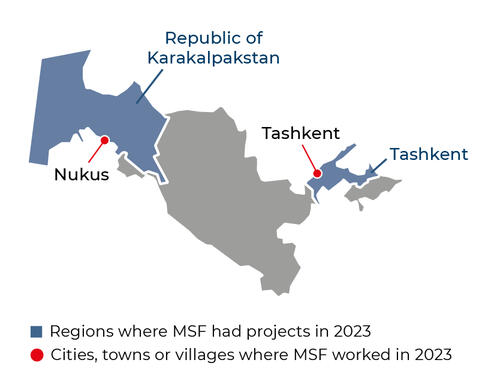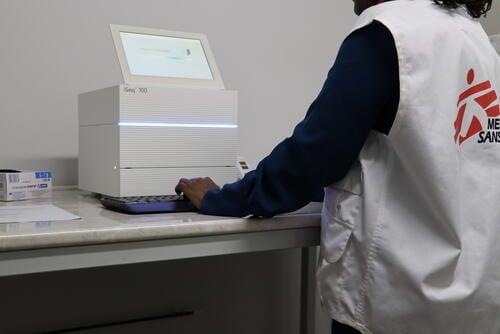With the comprehensive care programme, we support the Ministry of Health (MoH) in its rollout of protocols reflecting global best practices, as well as introduce healthcare innovations, and promote shorter course TB treatment regimens using new and repurposed drugs.
We have also implemented the TB PRACTECAL clinical trial. This is the first-ever multi-country, randomised, controlled clinical trial, aiming to demonstrate the safety and efficacy of a six-month, all oral treatment regimen for drug-resistant TB. We are now working with the World Health Organization to promote the new regimen as the international standard of care for drug-resistant TB patients.
In the capital, Tashkent, we provide support for the diagnosis and treatment of people living with HIV and co-infections. In 2021, we also launched a mobile laboratory to support the diagnosis of HIV and co-infections among vulnerable people.
Our teams also support the MoH in its efforts to develop the public healthcare system.
Our activities in 2023 in Uzbekistan
Data and information from the International Activity Report 2023.
293
293
€7.5 M
7.5M
1997
1997


550
55

To treat or not to treat? Implementation of DOTS in Central Asia

Responding to an environmental health disaster in Central Asia

Full TB coverage in Khorezm region of Uzbekistan

Operational research programme in Aral Sea claims first success

Tuberculosis control through DOTS treatment to start in Dashoguz City




